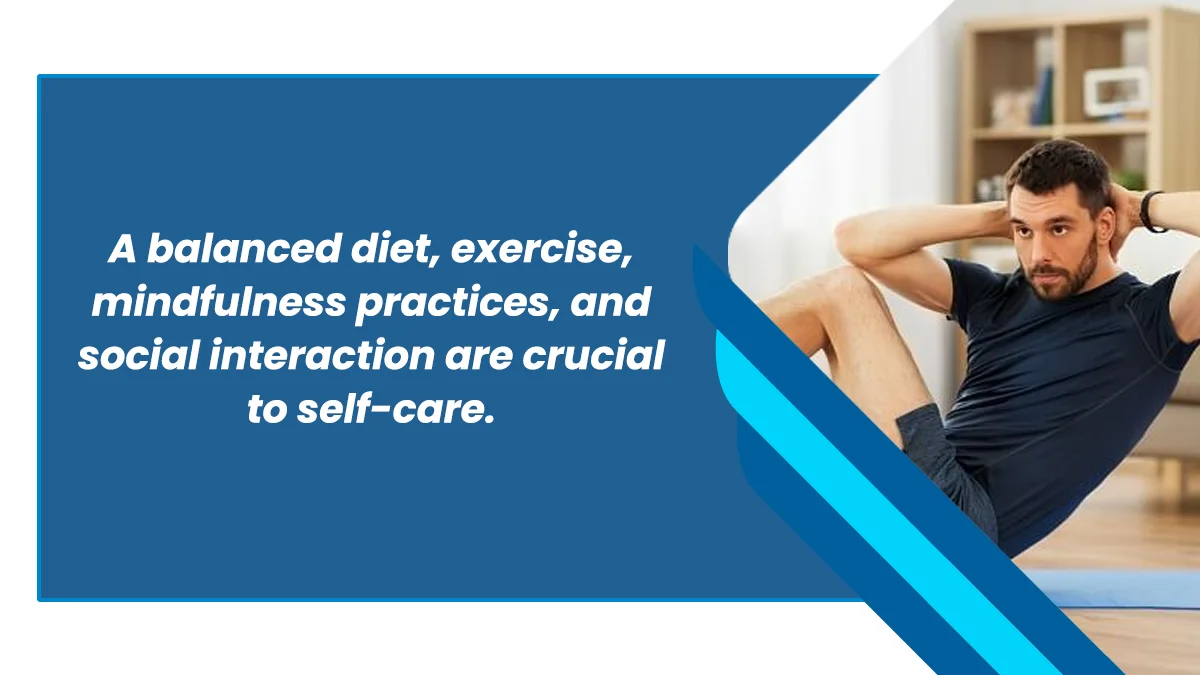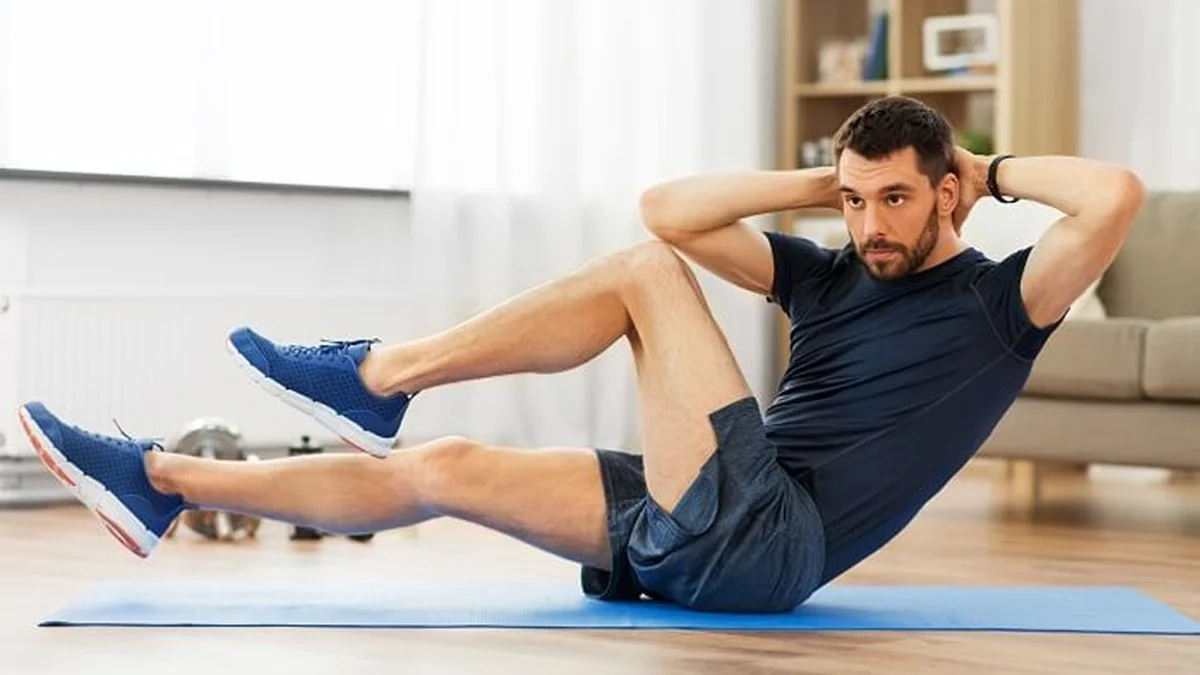In today’s modern world, it’s easy to neglect self-care and adopt unhealthy habits such as alcohol use while fulfilling the demands of family and meeting work deadlines. Creating a self-care guide is essential for maintaining mental and emotional health in our busy lives.
Introducing self-care strategies in your daily routine fosters resilience and overall physical stability. Such a guide is also helpful for patients undergoing medical detox. Identifying needs and self-awareness lay the foundation for a meaningful self-care routine.

Key Takeaways
Self-care is essential for mental and emotional well-being in today’s fast-paced world. Here is what you need to know:
- Self-care includes physical and mental health practices essential for maintaining resilience.
- A balanced diet, exercise, mindfulness practices, and social interaction are crucial to self-care.
- A consistent self-care routine involves identifying needs, allocating time, and staying realistic.
The Haven Detox-New Jersey specializes in providing addiction services and recovery programs. Contact us at (856) 565-3102 today.
Understanding the Importance of Self-Care
Self-care is the deliberate practice of tending to one’s physical, emotional, and mental well-being amidst life’s demands and stress. It involves setting aside time, even just a few minutes, in your daily routine to focus on your needs.
A self-care plan can include meditation, exercise, or simply relaxing with a good book. It helps individuals alleviate stress, rejuvenate their bodies, and maintain a healthy work-life balance.
By integrating self-care into daily routines, it assists in achieving personal goals. Moreover, it aids in nurturing a positive mindset and avoiding the enduring overwhelm often caused by never-ending to-do lists.
Role of Self-Care and Quality of Life
Self-care is crucial to maintaining your well-being in a world dominated by technology and exhausting screen time. It encompasses actions and practices prioritizing mental and physical health, allowing you to recharge and thrive daily.
Self-Care for Mental Health
In our hectic days, the demands of jobs, relationships, and other time-consuming responsibilities can often overwhelm you. Instead of having cans of beer, engaging in self-care activities is best. Such an approach is essential to combat stress and anxiety. By making mental health a priority, individuals can better cope with life’s challenges.
Prioritizing Physical Health Through Self-Care
Our bodies are the vehicles that carry us through life, and taking care of them is paramount. It’s easy to neglect physical health when busy, but finding ways to incorporate self-care practices can make a significant difference.
Regular exercise, balanced nutrition, a skincare routine, and sufficient rest are some of the best things we can do for ourselves. Additionally, scheduling regular check-ups and addressing health concerns can help prevent larger issues, allowing individuals to continue caring for their family members effectively.
Building Blocks of Effective Self-Care Routine
A well-structured self-care routine is vital to pursue a balanced and fulfilling life. This routine contains components that contribute to your holistic well-being.
Physical Exercise
Regular physical activity is a cornerstone of self-care. A mix of cardiovascular exercises like jogging or cycling enhances heart health. Strength training, including weightlifting or bodyweight exercises, builds muscle strength.
Flexibility exercises such as yoga or stretching routines increase mobility and reduce the risk of injury. It’s an opportunity to break away from daily demands, take deep breaths, and prioritize your well-being daily.
Balanced Diet
A balanced diet is the fuel that powers your body and mind. Avoid alcohol or drug consumption to maintain your mental well-being. Nourishing yourself with various nutrient-rich healthy meals provides the essential vitamins, minerals, and energy for daily activities.
Practicing self-care through healthy eating means eating healthily and being mindful of your eating habits. Such healthy habits are also quite helpful during alcoholism treatment as they can reduce cravings and alleviate withdrawal symptoms. Pay attention to portion sizes and strive for a diet rich in fruits, vegetables, lean proteins, and whole grains to support your well-being.
Mental Health Practices
Taking care of your mental health is equally important. In addition to the practices mentioned earlier, consider incorporating mindfulness meditation, journaling, or therapy sessions into your self-care routine. These practices can help you manage anxiety and other mental health challenges and help you respond better in stressful conditions.
Essential Sleep
Quality sleep is the foundation of your self-care routine. Getting enough restorative sleep is important for cognitive function, emotional stability, and overall health. Prioritize a consistent sleep schedule, create a relaxing bedtime routine, and ensure your sleep environment is conducive to rest. Adequate, quality sleep empowers you to face daily with vigor and clarity.
Social Interaction
Human connection is an often-underestimated aspect of self-care. Maintaining healthy relationships and engaging in social interactions can boost your confidence. Spending time with close friends and family, joining clubs, or participating in community activities can provide a sense of belonging and support, which is vital for mental and emotional health.
Carving an Achievable Self-Care Routine
In the whirlwind of our busy daily lives, carving out time for self-care is not just a good idea; it’s a necessity. Self-care encompasses the willful actions and practices prioritizing your physical and mental fitness.
Combating stress, nurturing strength, and leading a healthier, more fulfilling life is essential. Follow these practical steps to make self-care a consistent and productive part of your routine.
Identifying Needs
The first step in creating a self-care strategy is self-awareness. Take the time to identify your mental and physical needs and brainstorm ways to meditate and relax. Reflect on the areas in your life where self-care can significantly impact. Are you dealing with work-related stress, studies, or mental health issues? Knowing your needs is how you’ll build your self-care routine.
Allocating Time
Allocate specific time in your daily or weekly schedule for self-care. Treat this time with respect and commitment as any other appointment or responsibility. Whether it’s a few minutes in the morning for a cup of tea, an hour for a workout, or a full day for spa days or relaxation, designate it as a non-negotiable part of your day.
Being Realistic
When creating your self-care routine, be realistic about the time you can realistically set aside. Start with small changes and manageable goals, and gradually expand as you become more comfortable with self-care. Don’t feel pressured to overhaul your daily life all at once. Simple tips and strategies are often more effective than grand gestures.
Consistency is Key
The power of self-care lies in its consistency. Regular self-care is more effective than occasional indulgences. Use a journal or a self-care checklist to track your progress and ensure you’re dedicating time to address your needs regularly. Set up an alarm clock to follow your self-care routine. Consistency ensures that self-care becomes an ingrained and productive way of life.
Frequently Asked Questions (FAQ)
How do you make a good self-care routine?
Creating an effective self-care routine involves identifying your needs, allocating dedicated time, setting realistic goals, and maintaining consistency. Start by recognizing what aspects of your physical and mental well-being require attention, then make a schedule that accommodates self-care without compromising other responsibilities.
Keep it realistic, start small, and gradually expand. Consistency is key, ensuring that self-care becomes a chronic and productive part of your life.
What is an example of a personal care routine?
An example of a personal care routine involves dedicating extra time each day or week to focus on your well-being. That can include morning hygiene, skincare, grooming, dressing, and having a balanced breakfast.
Some self-care tips and strategies to consider in your routine may involve practicing mindfulness, journaling, meditation, or engaging in hobbies you love. It’s about setting aside dedicated moments to nurture your emotional and mental well-being, creating a balanced and fulfilling life.
What are some crucial components of a successful self-care routine?
Key elements of a successful self-care routine encompass physical exercise, a balanced diet, mental health practices, essential sleep, and social interaction. These components cater to both your physical and emotional needs.
Regular exercise, mindfulness, and adequate sleep foster well-being, while social interaction nourishes emotional health. Balancing these components leads to a more balanced and fulfilling life.
Reclaim Your Life at The Haven Detox-New Jersey
Prioritizing your mental and physical health is the first step towards self-care. At The Haven Detox-New Jersey, we offer professional treatment to combat addiction and mental illnesses.
Our safe and compassionate detox process can be the first step towards a healthier, substance-free life. Our facility’s structured residential program provides a supportive environment for comprehensive recovery.
Need help navigating the path to recovery? Contact us at (856) 565-3102 today.

 (856) 565-3102
(856) 565-3102




 29 December 2023
29 December 2023 

